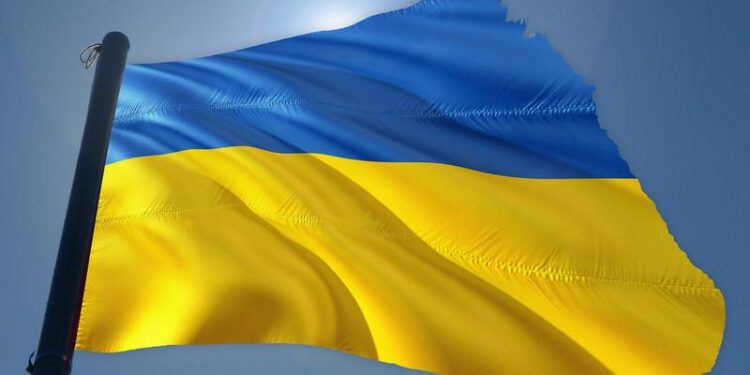Ukraine and Allies Advocate for a 30-Day Ceasefire Amidst Escalating Conflict
In a meaningful development in the ongoing hostilities between Ukraine and Russia, Ukrainian leaders, in collaboration with their allies, have proposed a 30-day ceasefire. This initiative seeks to promote peace during a period marked by escalating tensions and heavy casualties on both sides. The proposal was conveyed through a joint statement from prominent representatives of Ukraine and Western nations, underscoring the urgent necessity for resolution in this devastating conflict that has affected millions. As the deadline approaches, the global community is closely observing, aware that Moscow’s reaction could significantly impact regional stability and international relations.
Humanitarian Relief: The Rationale Behind the Ceasefire Proposal
In an assertive diplomatic maneuver, Ukraine along with its allies has issued an ultimatum to Russia demanding an immediate 30-day ceasefire. This request is fueled by pressing humanitarian needs as civilians remain trapped amidst ongoing violence. The proposed truce aims not only to alleviate suffering but also to provide humanitarian organizations with unrestricted access to deliver essential supplies such as food, water, and medical aid. Supporters of Ukraine emphasize that this ceasefire represents more than just a temporary halt; it is vital for initiating peace talks and restoring normalcy for those affected by continuous violence.
The coalition’s strategic approach prioritizes humanitarian concerns over military objectives. Advocates argue that even a brief pause in hostilities could open avenues for broader discussions aimed at de-escalation and long-term stability within the region. Key points highlighted include:
- Cessation: An immediate stop to all military actions.
- Access: Unrestricted entry for humanitarian agencies into affected areas.
- Civilian Protection: Ensuring safety measures are implemented during aid distribution efforts.
- Compliance Monitoring: Establishing mechanisms to oversee adherence to the ceasefire agreement.
Global Response: Implications of Proposed Ceasefire on Diplomatic Efforts
The recent appeal from Ukraine and its allies urging Russia towards acceptance of a 30-day ceasefire, marks an vital moment not only within their conflict but also on the global diplomatic stage. This proposed truce seeks immediate relief for civilians while laying essential groundwork necessary for advancing future negotiations. Observers note several implications arising from this situation:
- A Diplomatic Reset:A triumphant cease-fire may create conditions conducive to renewed peace discussions.
- Facilitation of Aid: The temporary cessation could enable crucial humanitarian assistance delivery across war-affected regions, alleviating civilian hardships.
- Geopolitical Dynamics: Responses from major players like the United States or European Union members may reshape alliances while influencing future military support policies or sanctions against Russia.
The reactions from around the world will play an integral role in shaping future diplomatic paths regarding this ultimatum. Analysts suggest that while some nations might view this call as pivotal towards achieving lasting peace solutions; others may interpret it merely as strategic posturing by Russia aimed at regrouping militarily before resuming hostilities later on.
Country Support Level Potential Conditions United States Strongly Supportive Verification Measures Required Germany Moderate Support  <td Troop Withdrawal Required < td China   <td   Conditional Support   <td   Non-interference Stipulation < td   Turkey      Supportive     Facilitating Negotiations Challenges Ahead: Assessing Obstacles Towards Achieving A Cease-fire Amid Ongoing Hostilities
The potential establishment of any formal agreement surrounding ceasing fire remains central within current international diplomacy efforts yet faces considerable hurdles ahead.< Strong Military Posturing & Political Rhetoric have created complexities where negotiations risk faltering altogether due largely distrustful sentiments prevailing between both parties involved . Some challenges identified include :
- < Strong Trust Deficit : Both sides harbor deep-seated skepticism regarding each other's commitment toward achieving genuine peaceful resolutions .
- < Strong On-Ground Realities : Ongoing military operations complicate agreements since territorial shifts can alter negotiation dynamics significantly .
- < Strong External Influences : Global powers' interests might sway or obstruct unified approaches toward establishing effective ceasefires .
Moreover , timelines suggested around implementing these truces pose additional concerns ; without clear roadmaps addressing underlying issues , they risk being perceived merely temporary fixes leading skepticism about long-term viability overall . Observers emphasize openness surrounding terms associated with any potential agreements made hereafter ; key considerations involve :
Consideration </th </th </th </th Importance </th Verification Mechanisms
</td
</td
</td
&amsp;</tbody>
</table><h3>Conclusion</h3>
In conclusion ,the ultimatum presented jointly by Ukrainian authorities alongside allied nations advocating towards establishing thirty days’ worth cessation marks critical juncture amidst ongoing strife involving Russian forces . As global leaders observe closely whether Moscow embraces such calls temporarily halting hostilities offers glimmer hope amid devastation wrought upon countless lives affected directly through warfare itself .
Negotiators now face daunting task bridging divides existing between conflicting parties hoping forge pathways leading ultimately toward lasting resolutions sought after desperately throughout entire region’s populace awaiting responses forthcoming soon enough .
ADVERTISEMENT
















